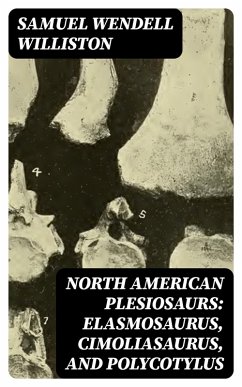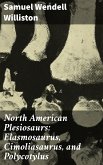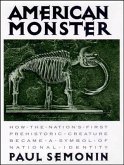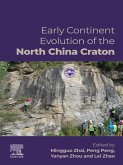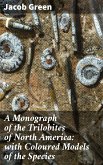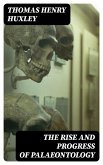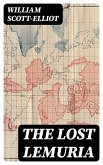In "North American Plesiosaurs: Elasmosaurus, Cimoliasaurus, and Polycotylus," Samuel Wendell Williston meticulously examines the anatomy and paleobiology of these ancient marine reptiles that thrived during the Late Cretaceous period. With a scholarly depth characteristic of Williston's work, the book combines detailed anatomical drawings and fossils' descriptions. His use of scientific nomenclature reflects the burgeoning field of vertebrate paleontology in the late 19th century, contextualizing these creatures within the greater evolutionary tapestry. This pioneering study not only catalogues these fascinating animals but also sheds light on their ecological roles and behaviors, offering valuable insights into prehistoric marine ecosystems. Samuel Wendell Williston was an eminent paleontologist whose career spanned the late 1800s to early 1900s. His extensive background in geology and paleontology, particularly his work in the Western United States, fueled his fascination with prehistoric life. Williston's authoritative voice in the field is informed by his belief in rigorous scientific methodology and thorough observation, allowing him to contribute significantly to the understanding of Mesozoic marine life through this text. "North American Plesiosaurs" is essential for students, enthusiasts, and professionals in paleontology and evolutionary biology. Williston's detailed analysis not only enriches our understanding of these creatures but also exemplifies the progression of vertebrate studies. Readers will find themselves captivated by the mysteries of the ancient seas, making this book both a resource and an engaging exploration into the world of plesiosaurs.
Dieser Download kann aus rechtlichen Gründen nur mit Rechnungsadresse in A, B, BG, CY, CZ, D, DK, EW, E, FIN, F, GR, H, IRL, I, LT, L, LR, M, NL, PL, P, R, S, SLO, SK ausgeliefert werden.

